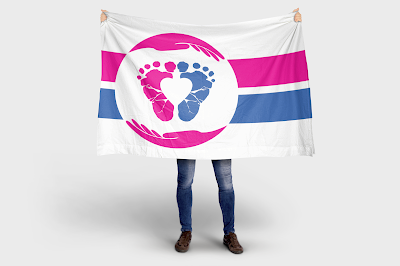Behind the Scenes with a Pregnancy Helpline Worker
Secular Pro-Life co-leader Monica Snyder interviewed Petra Wallenmayer about her experiences as a pregnancy helpline worker. The interview has been edited for length and clarity. (Portions that were cut for length may appear in a later post; stay tuned!)
Q: What are the primary pressures that women are feeling or concerns that you hear?
A: FEAR, in general. Fear of what the future holds and how they will be able to handle everything. “I absolutely cannot have a kid right now” — fear of pregnancy, parenting, childbirth, and the future. Then there are the financial pressures: not having insurance; concerns about the cost of prenatal care; the cost of abortion; the cost of raising kid(s); not having a job; being homeless; still living with parents; boyfriend or significant other doesn’t have a job, can’t afford baby items or a bigger place to live, et cetera.
Others cite not feeling ready to parent; they feel too young, financially unstable, or mentally unwell. Maybe she has health problems, or hasn’t finished school yet.
Finally, there’s lack of support from family, friends, and/or the significant other. Callers feel alone and overwhelmed.
Q: What support is typically lacking that causes women to need the line?
A: Affordable medical care, or information on how to access affordable medical care. They do not have insurance, they can’t find an OB/GYN who will take them unless they jump through a bunch of hoops first, or there are no OB/GYNs with availability. Additionally, many have no idea how to apply for pregnancy insurance through the state or how to ask a hospital system for a payment plan, financial assistance, and things like that to help with delivery costs.
They don’t have a good social support system or are too afraid to let people who may support them know they are pregnant. Much of this fear is driven by their assumptions of how people will respond, whether the assumptions are rooted in actual past experience or not.
Information or knowledge about their bodies, birth control, pregnancy, and abortion in general is lacking — so educational and/or familial support is required.
Q: What do you think women need the most in crisis situations?
A: They need emotional support — someone who will listen and not judge them, someone who will encourage them, someone who can offer alternatives and new perspective — and physical support — someone who can help them make phone calls, help getting to appointments, a doctor for prenatal care, insurance, financial aid, classes to prepare for birth and parenting a newborn, and baby and maternity items. If you can help your friend arrange for any of these services, that’s a big deal.



Leave a Reply
Want to join the discussion?Feel free to contribute!